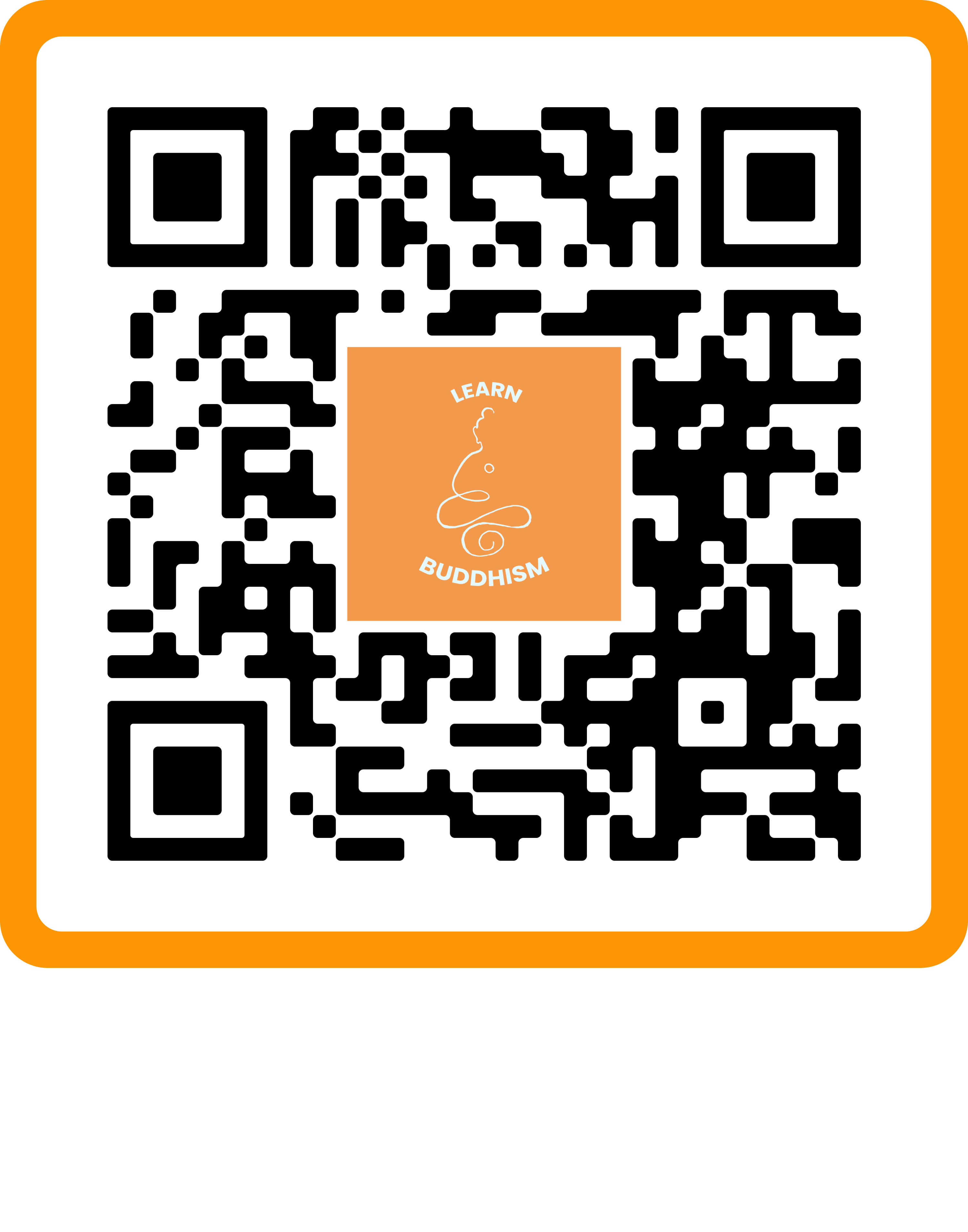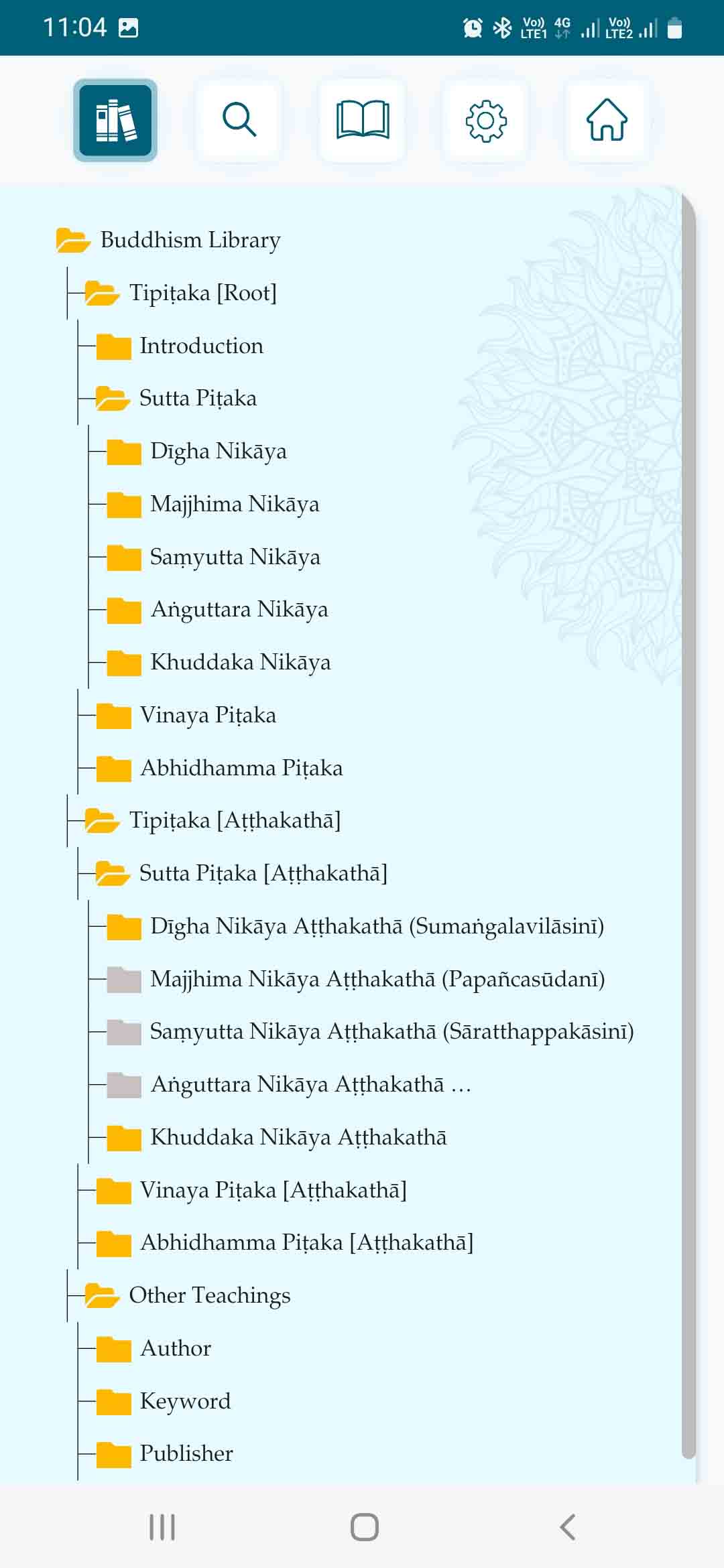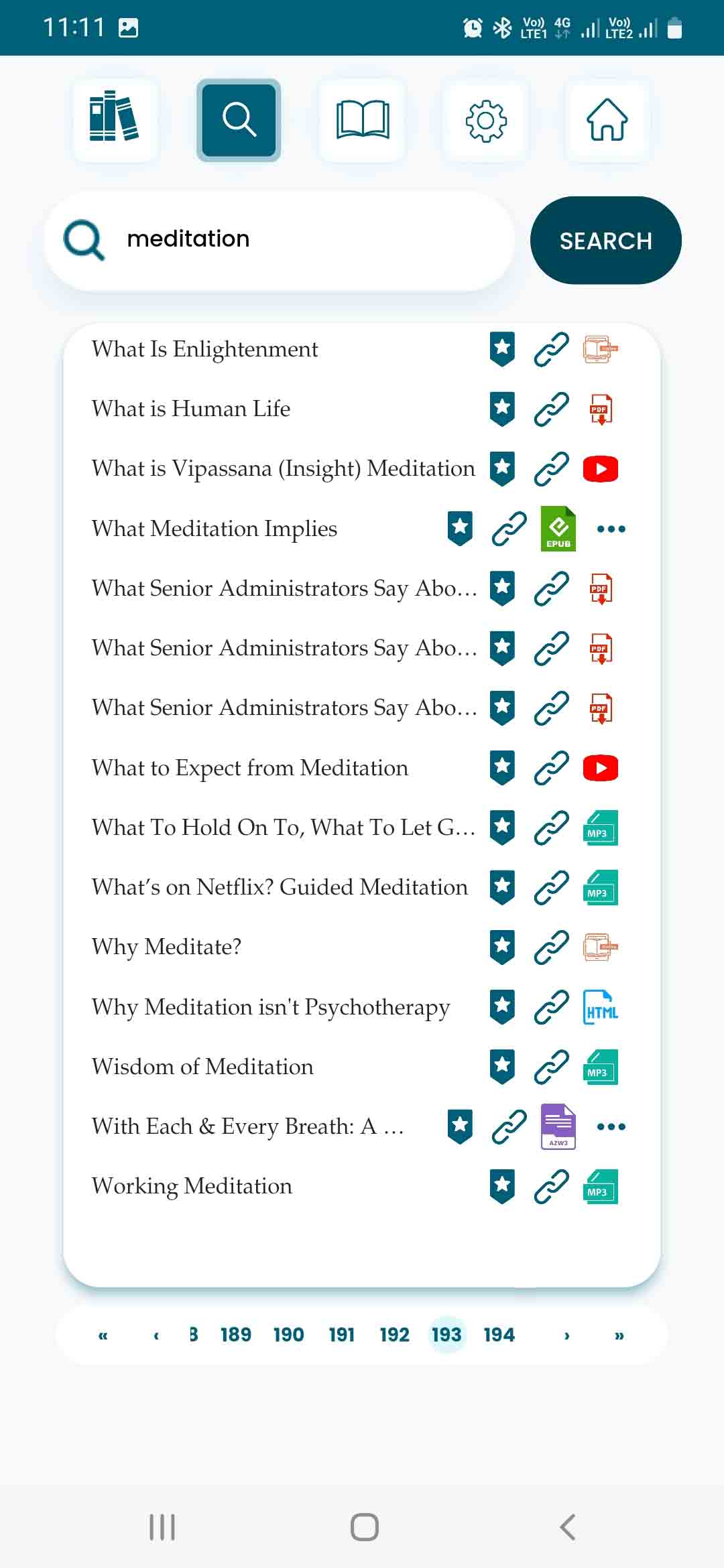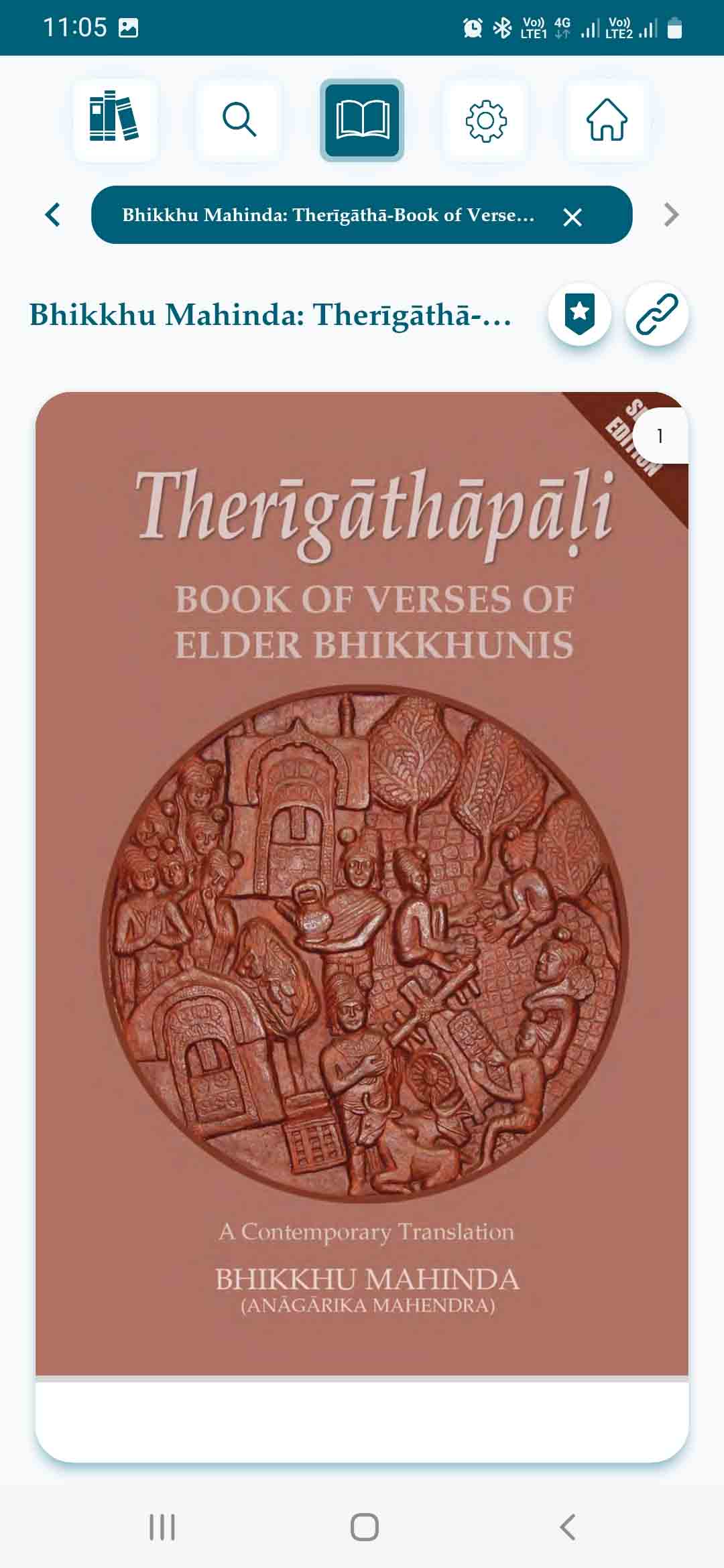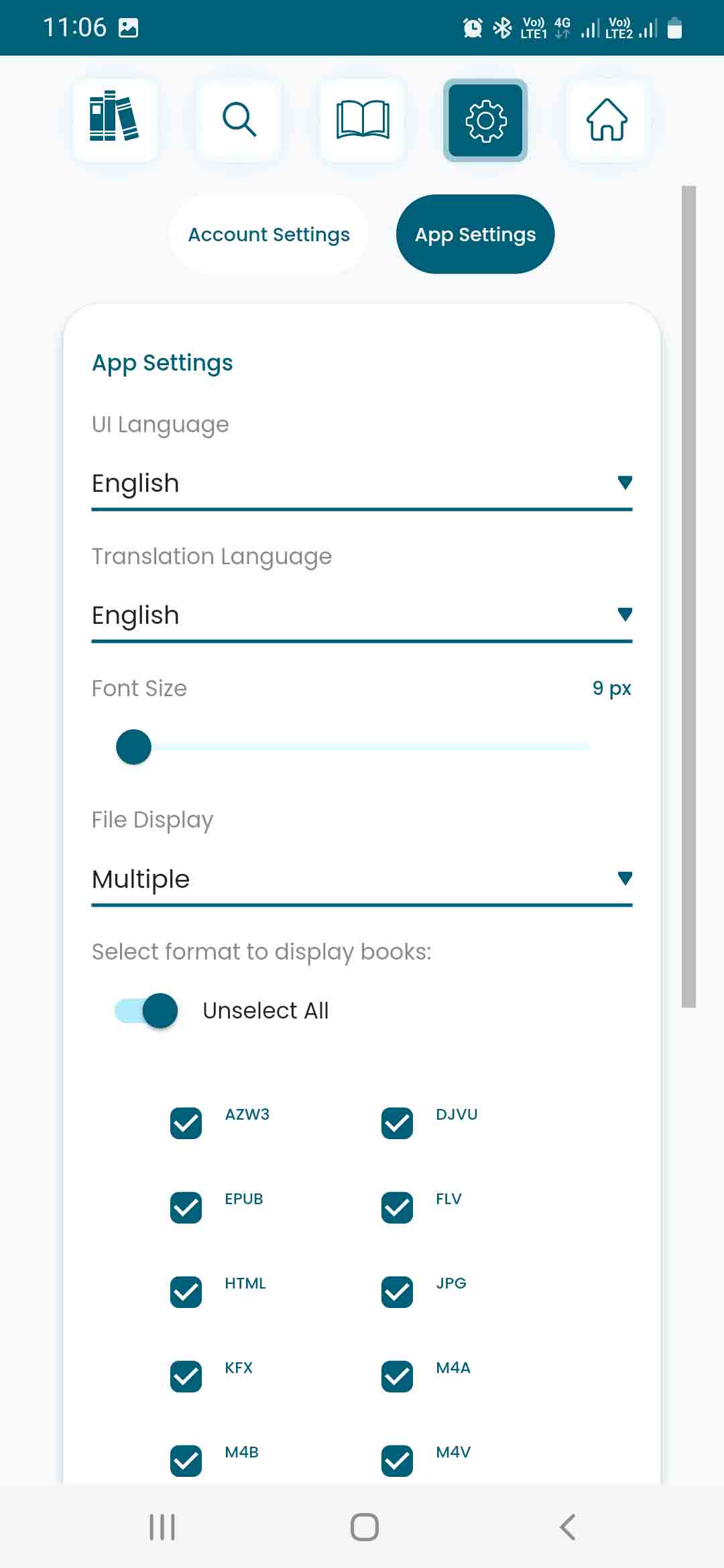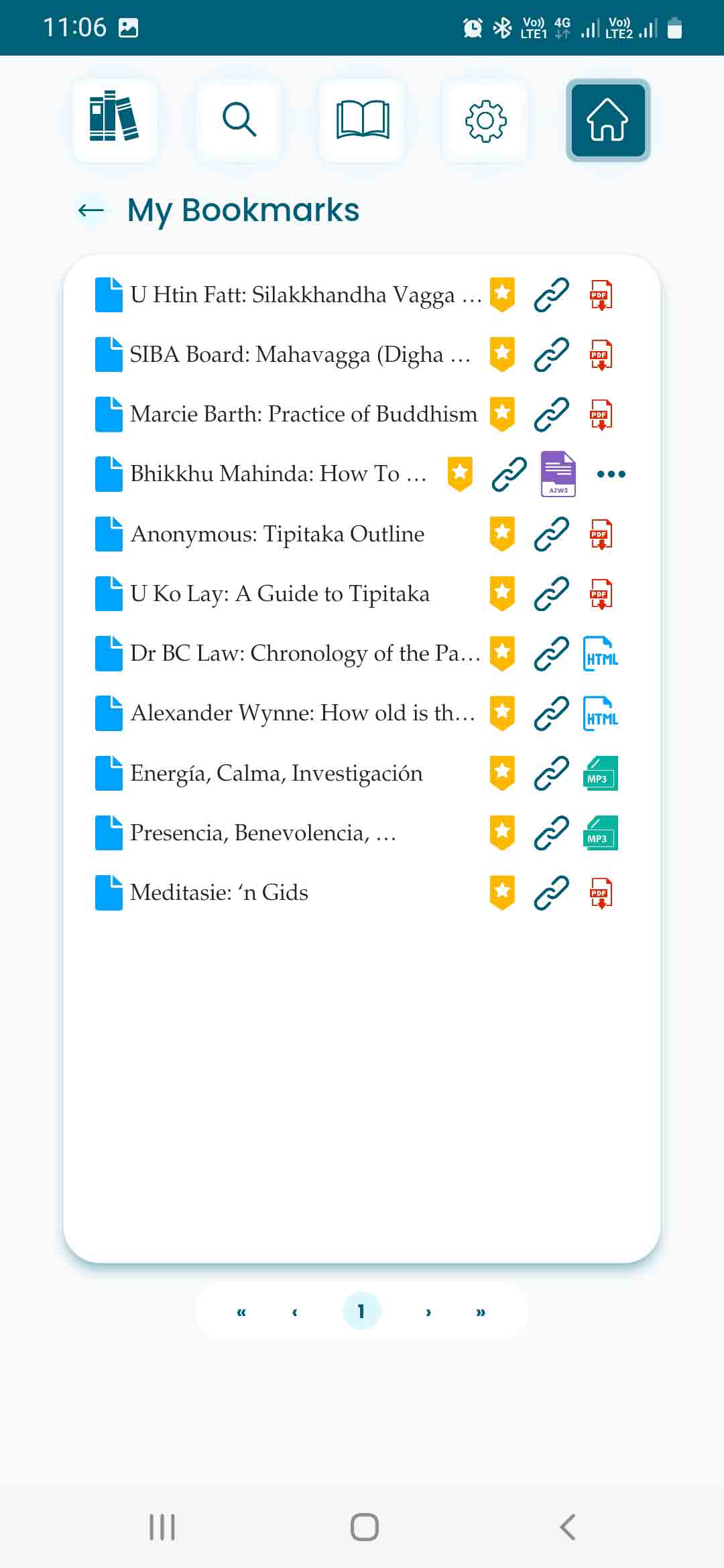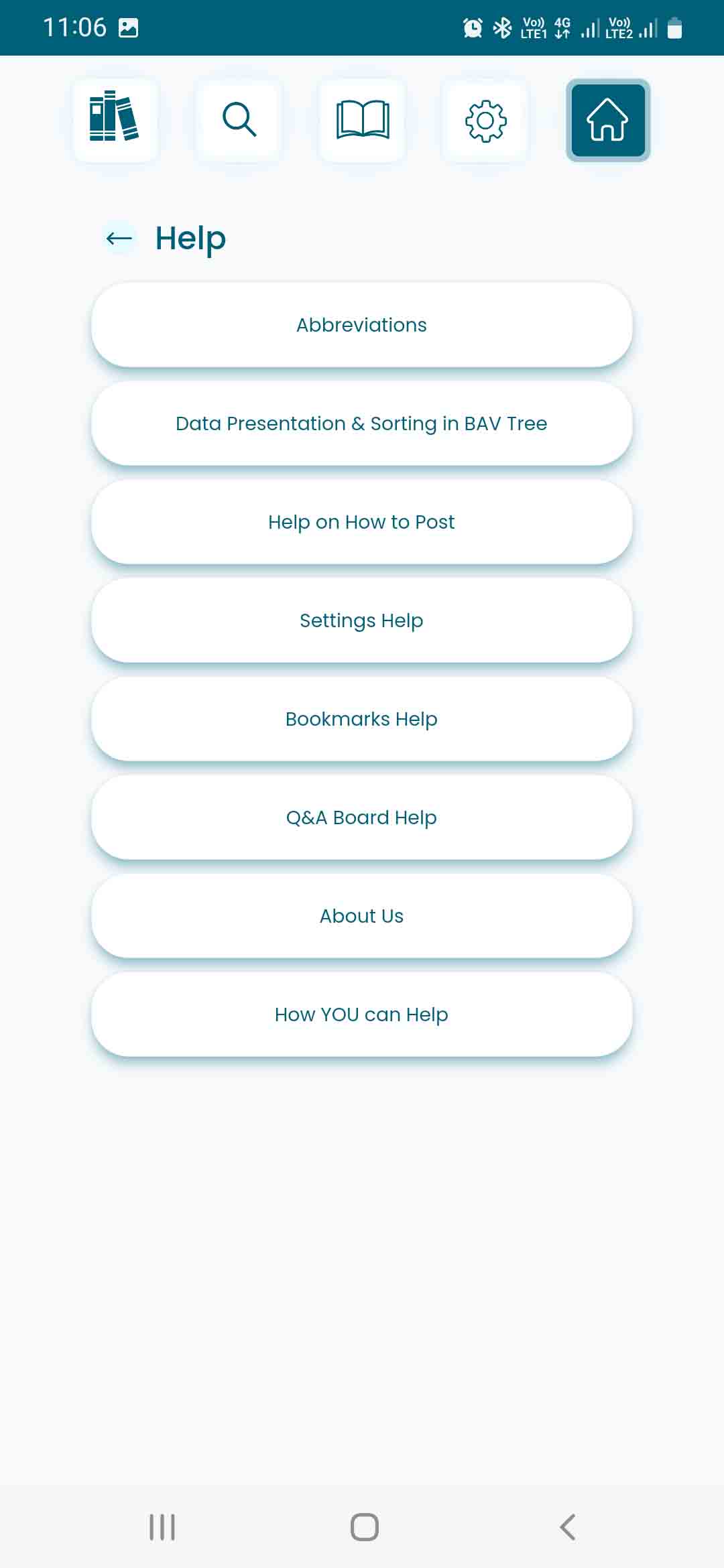About Us
If you are curious to learn about Buddhism, you have come to the right place! We are dedicated to aggregating everything about Buddhism and presenting it to the user in an intuitive interface in a Web App as well as Mobile Apps on Android and iOS platforms. All our offerings are always given freely as a Dhamma Dāna. They are free – now and forever. There will never be in-app sales, solicitation, or ads of any kind. We will NEVER sell your information to anyone. The longest journey begins with a small step. We are glad you have joined us on this journey!
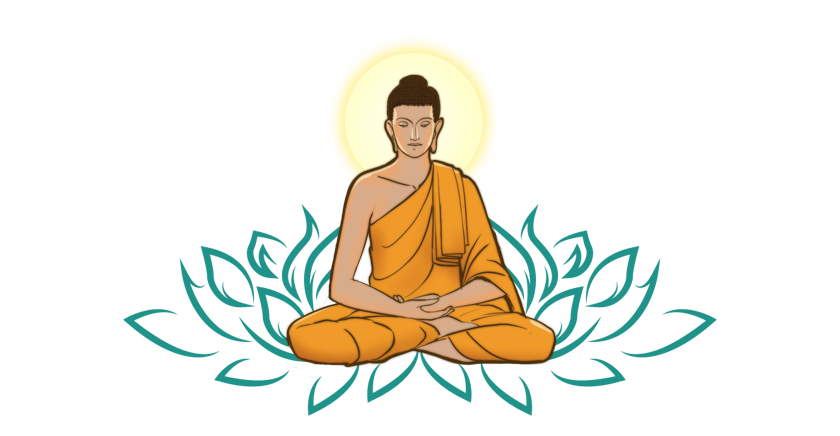
The App
Explore Lord Buddha’s teachings using the Learn Buddhism App, including Translations of Theravāda Tipiṭaka Books as well as Teachings from the world-famous Ajahns and Teachers. You can access Teachings and Translations in over 61 languages, representing over 2500 Authors and more than 40,000 Teachings. Teachings are in 18 file formats including PDF, ePub, YouTube, Audio, and Video and represent a gamut of teaching styles and presentations. Start your journey of learning NOW!
Teachings
(Copyrights with the respective owners.)
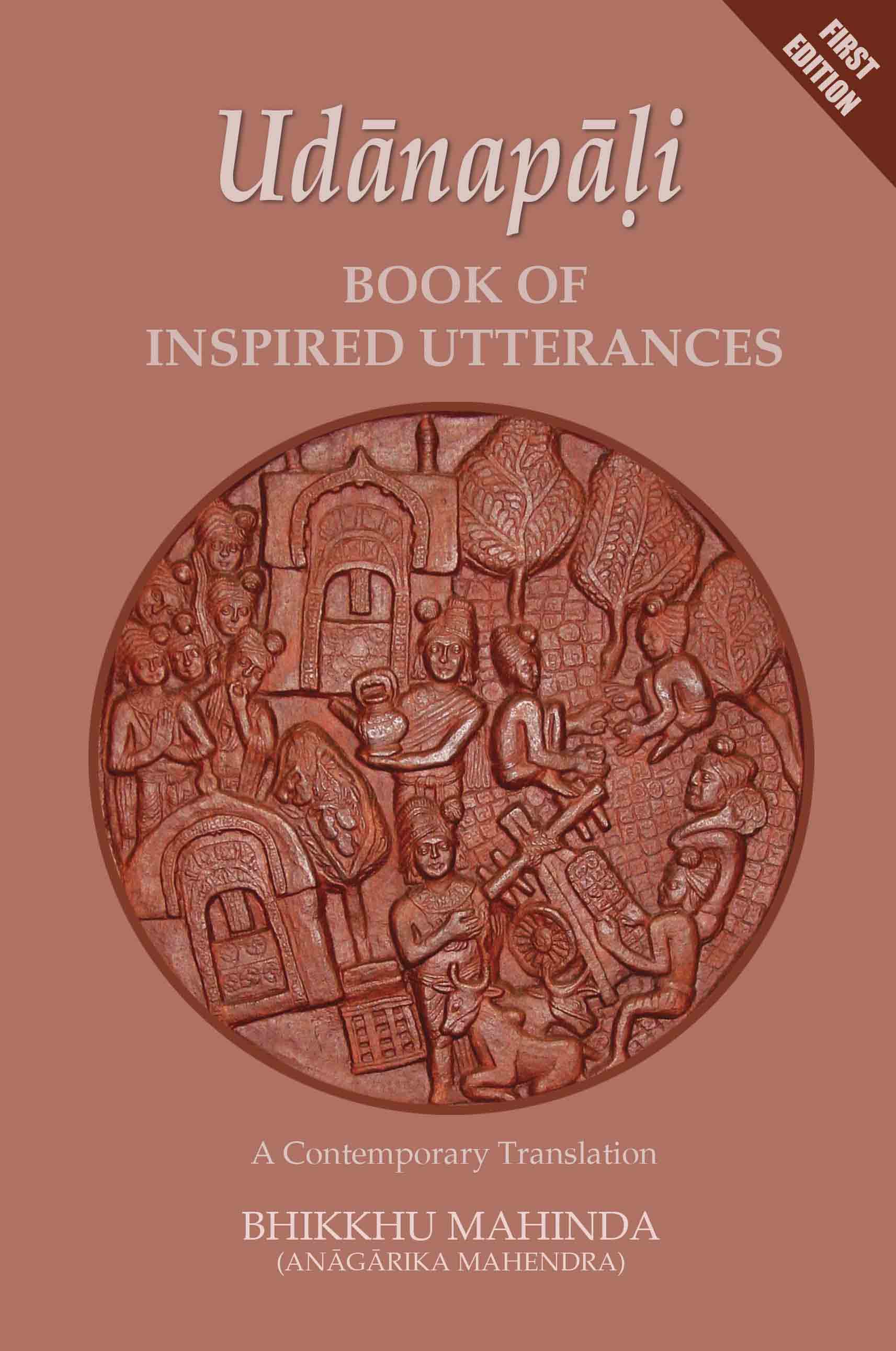
Udānapāḷi
Book of Inspired Utterances
The present book, Udāna, belongs to the Pāḷi Tipiṭaka, the authorized recension for the Theravāda Buddhism. It is unique in the Buddhist Teachings in that it contains teachings that are exclusively “inspired” in nature. Usually, when Lord Buddha observed a situation or a fact that was so obvious, he was inspired to utter a teaching specific to that situation, hence the name “Inspired Utterances”. In an overwhelming number of suttā, they are in the verse form but some suttā also have it in prose form.
Udāna is also one of the nine divisions within which Lord Buddha's teachings are classified - thus the genesis of this term and this collection is indeed ancient. Other than the Udānā collected herein, there are some Udānā interspersed across the rest of the Pāḷi Tipiṭaka.
In this book, both Pāḷi originals and English translations are provided so it's easier for those who want to learn Pāḷi or just read the translations. Most of the Pāḷi terms now have been standardized across all the books I have authored. A full Pāḷi-English Glossary and detailed Endnotes will help the interested reader to explore further.
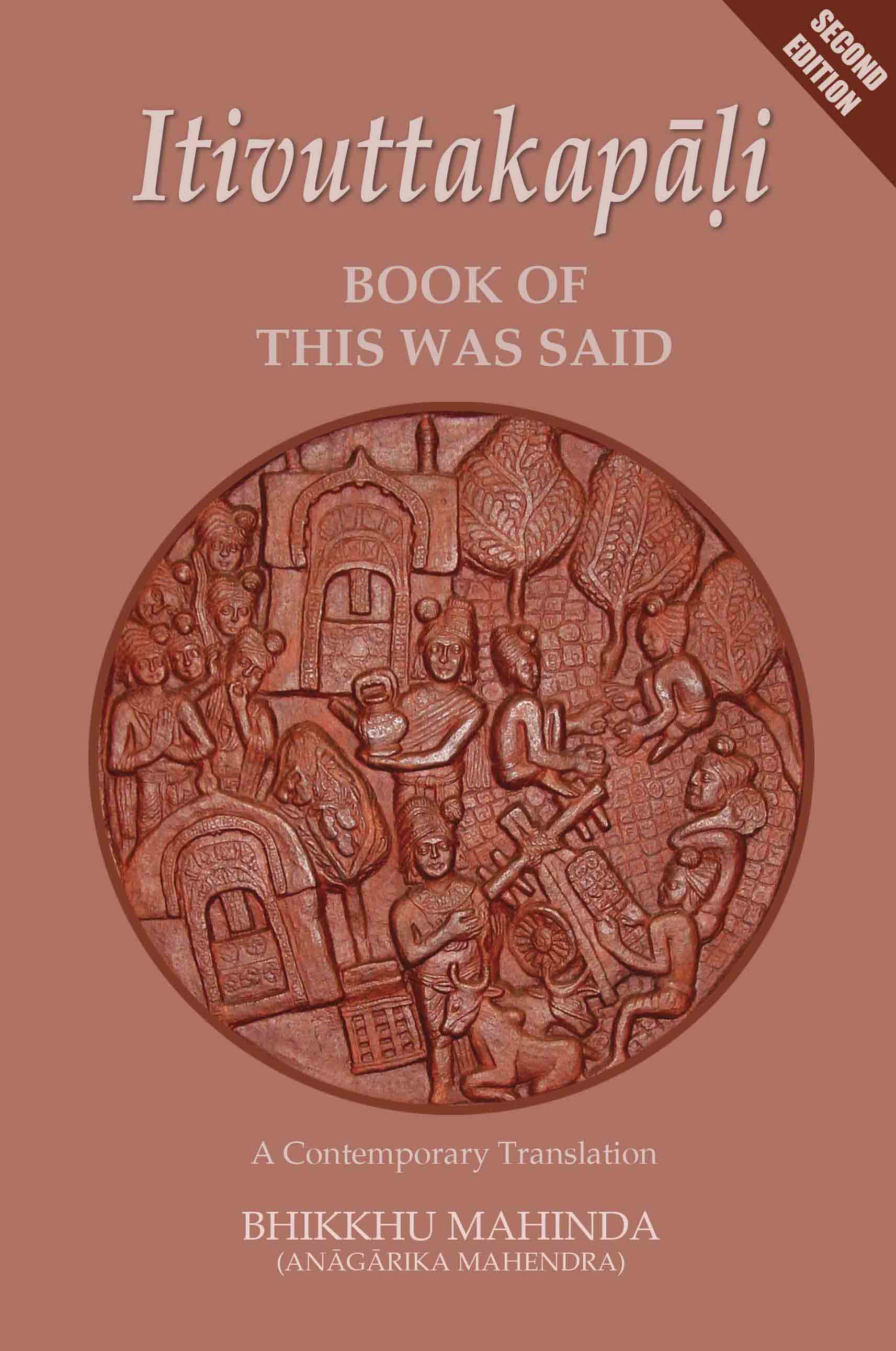
Itivuttakapāḷi
Book of This Was Said
The present book, Itivuttaka, belongs to the Pāḷi Tipiṭaka, the authorized recension for the Theravāda Buddhism. It is unique in the Buddhist Teachings in that it contains teachings recited and collected by a woman named Khujjuttarā (declared by Lord Buddha to be foremost of those who were learned), a maid-servant of the famous Queen Sāmāvati (declared by Lord Buddha to be foremost of those who dwelt in friendship). Whenever Lord Buddha was in Kosambi, Khujjuttarā would go and listen to the teachings. Upon her return she would recite the teachings to the royalty that included queens, princesses, and their maid-servants. To emphasize that she was telling the words of the enlightened one, she prefaced each teaching with the standard formula of “This was said by the Blessed one, said by the Arahant thus I heard”. In this way, while being of a lower class, she in fact became a teacher to the high-class, royal women. Itivuttaka is also one of the nine divisions within which Lord Buddha's teachings are classified - thus the genesis of this term and this collection is indeed ancient. In this book, both Pāḷi originals and English translations are provided so it's easier for those who want to learn Pāḷi or just read the translations. A full Pāḷi-English Glossary and detailed Endnotes will help the interested reader to explore further.
This is a completely reworked edition, with numerous textual and grammatical changes. New content has been added and existing content has been updated. Many Pāḷi terms have been modified and now they have been standardized across all the books I have authored.
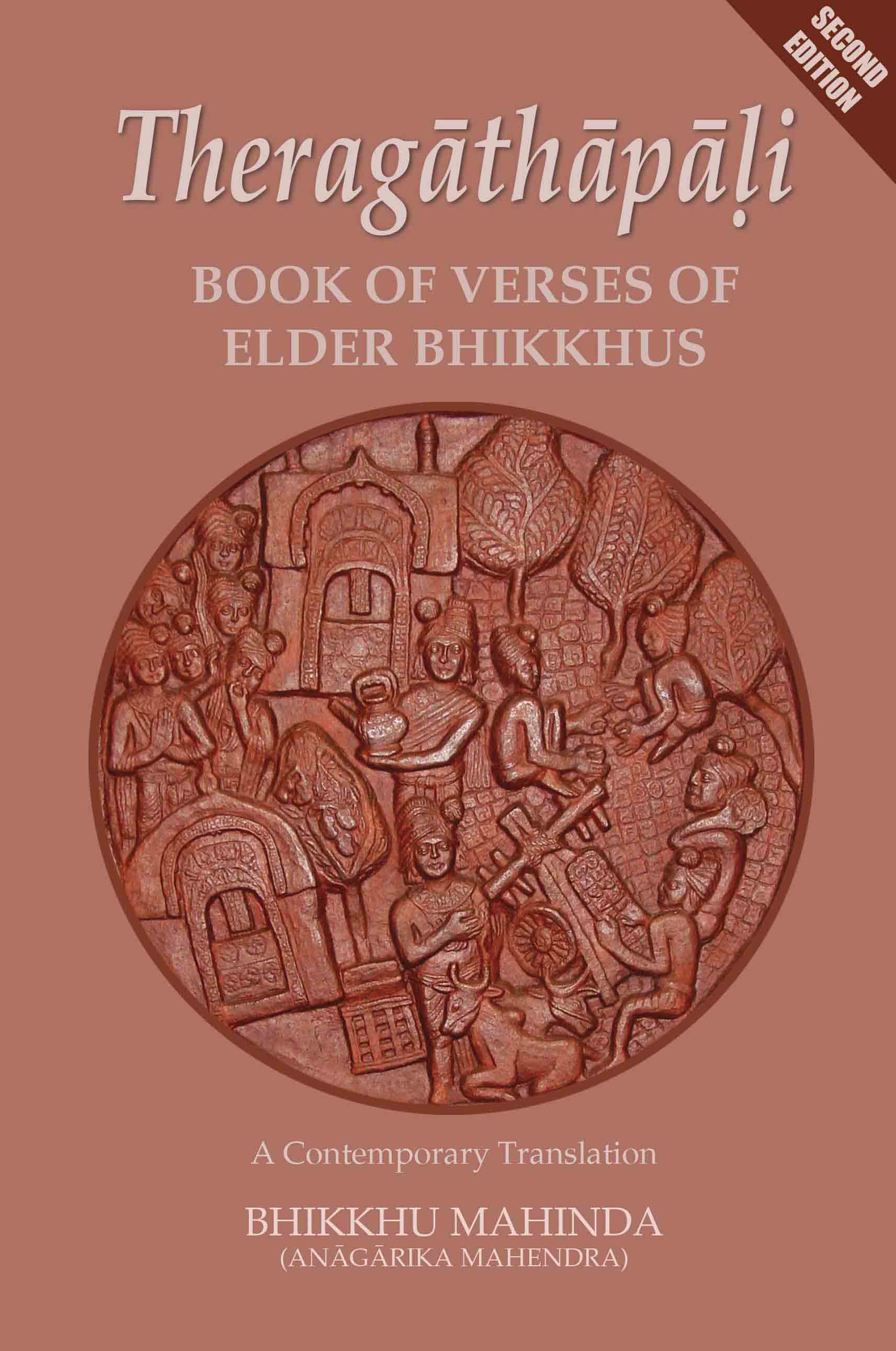
Theragāthāpāḷi
Book of Verses of Elder Bhikkhus
The present book, Theragāthā, belongs to the Pāḷi Tipiṭaka, the authorized recension for Theravāda. Theragāthā is perhaps unique in the world spiritual literature in that it contains verses exclusively by liberated men, and is likely the earliest such compendium.
The Elder Bhikkhus (therā in Pāḷi), whose verses (gāthā) are collected herein, represent a fair cross-section of the contemporary Indian society: here we find princes and paupers, Brāhmaṇā and Khattiyā, Vessā and Suddā, high-class society and down-trodden ones, children and senior citizens, single and married, talkative ones and quiet ones, fathers and sons - all of them singing songs of joy and gratitude; and extolling the Buddha, Dhammā, and Saṅghā. And the thing that unites them all? They all realized the ultimate - the cessation of lust, hate, and delusion; the liberation; the end of the cycle of becoming. The verses themselves are so powerful that they can be used as a subject of meditation to reflect on the sufferings inherent in the round of existence and generate the desire to be free.
In this book, both Pāḷi originals and English translations are provided so it's easier for those who want to learn Pāḷi or just read the translations. A full Pāḷi-English Glossary, detailed Endnotes, full biographical information about each Thera, and other indices will help the interested reader to learn more about the elder bhikkhus, their circumstances, and their strivings. This is a completely reworked edition, with numerous textual and grammatical changes. New content has been added and existing content has been updated. Many Pāḷi terms have been modified and now they have been standardized across all the books I have authored.
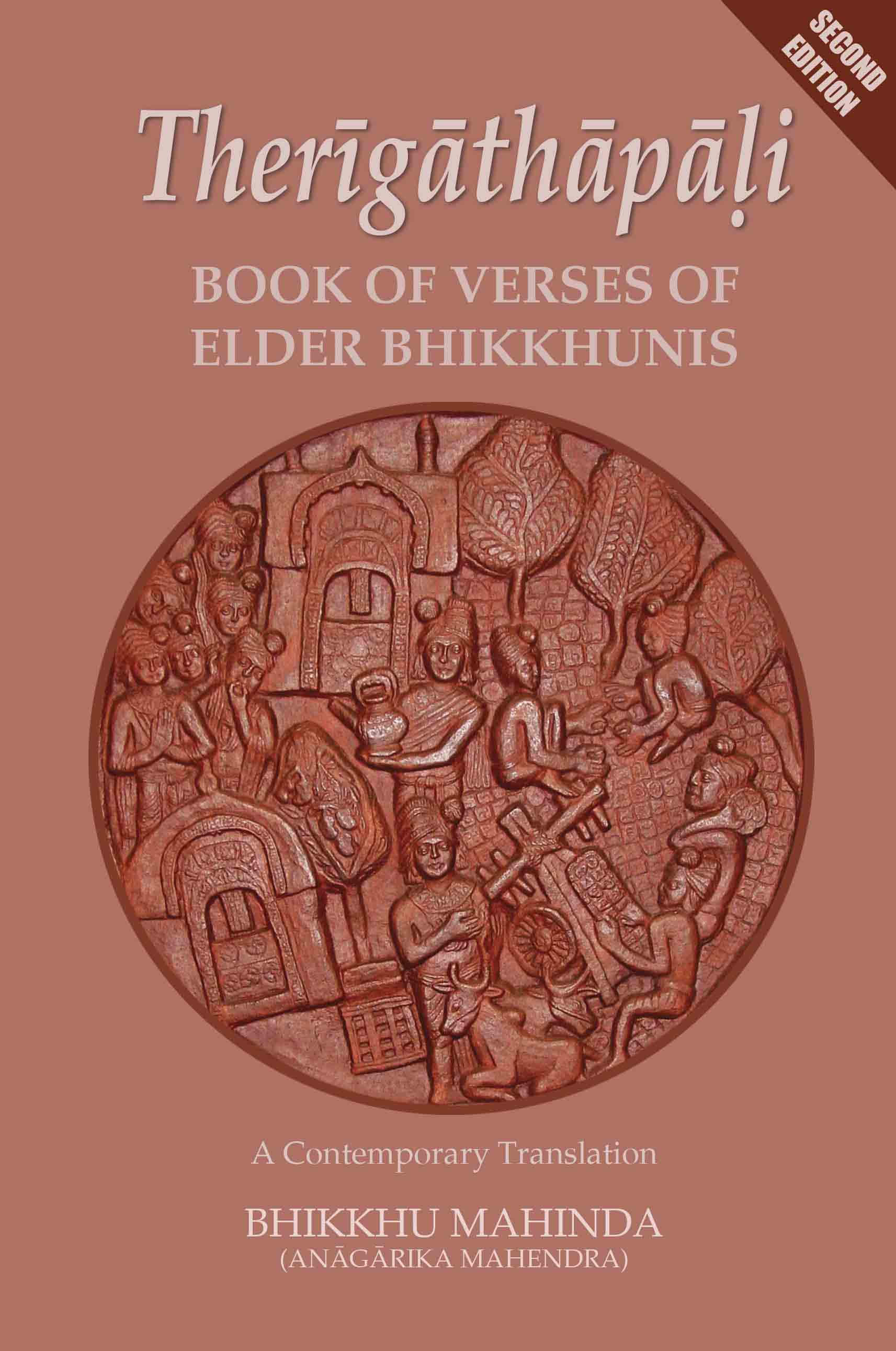
Therīgāthāpāḷi
Book of Verses of Elder Bhikkhunis
The present book, Therīgāthā, belongs to the Pāḷi Tipiṭaka, the authorized recension for Theravāda. Therīgāthā is perhaps unique in the world spiritual literature in that it contains verses exclusively by liberated women, and is likely the earliest such compendium.
The Elder Bhikkhunis (therī in Pāḷi), whose verses (gāthā) are collected herein, represent a cross-section of the contemporary Indian society: here we find princesses and paupers, socialites and peasants, teens and senior citizens, single and married, reputable housewives and courtesans, high-class society and down-trodden ones, mothers with children and mothers who have lost children, disputation experts and quiet ones - singing songs of joy and gratitude; and extolling the Buddha, Dhammā, and Saṅghā. And the thing that unites them all? They all realized the ultimate - the cessation of lust, hate, and delusion; the liberation; the end of the cycle of becoming. The verses are so powerful that they can be used as a tool to meditate and reflect on the sufferings inherent in the round of existence and generate the desire to be free.
In this book, both Pāḷi originals and English translations are provided so it's easier for those who want to learn Pāḷi or just read the translations. A full Pāḷi-English Glossary, detailed Endnotes, and other indices will help the interested reader to learn more about the elder bhikkhunis, their circumstances, and their strivings. This is a completely reworked edition, with numerous textual and grammatical changes. New content has been added and existing content has been updated. Many Pāḷi terms have been modified and now they have been standardized across all the books I have authored.
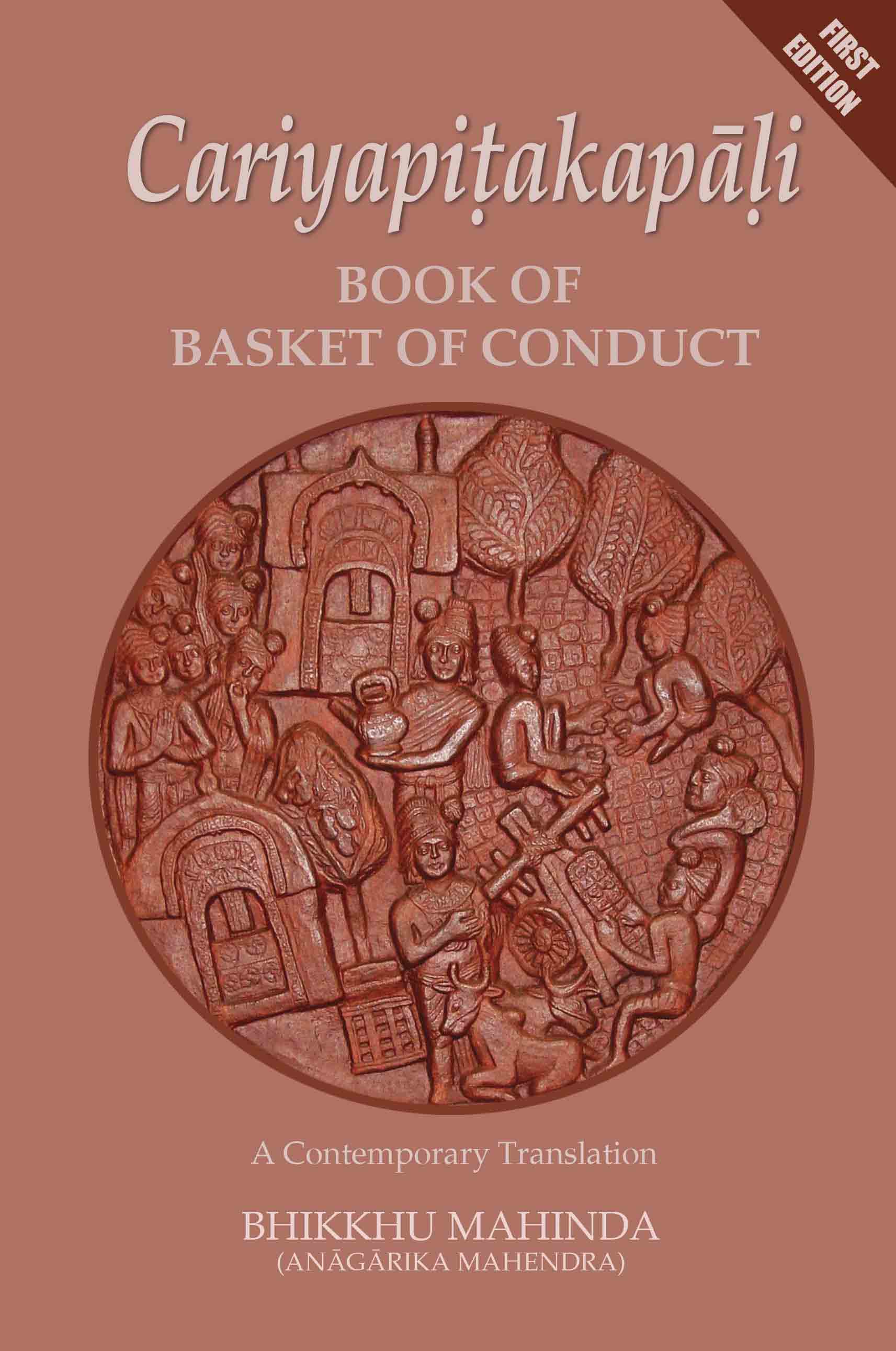
Cariyapiṭakapāḷi
Book of Basket of Conduct
The present book, Cariyāpiṭaka, belongs to the Pāḷi Tipiṭaka, the authorized recension for the Theravāda Buddhism. Keeping in line with the Indian inclinations, Cariyāpiṭaka was the first attempt at creating a biography of Lord Buddha – not a biography dealing with physical and mundane matters of this life but a biography stretching in to time immemorial to understand and enumerate the qualities that Lord Buddha developed over a period of 100,000 eons and four incalculables – a period beyond reckoning. Cariyāpiṭaka was meant as a guide for those interested in developing their character and their pāramī, so they can get on the path to liberation. The teachings herein are exclusively focused on Lord Buddha’s practice and perfection of pārāmis, hence the name “Basket of Conduct”.
In this book, both Pāḷi originals and English translations are provided so it’s easier for those who want to learn Pāḷi or just read the translations. Most of the Pāḷi terms now have been standardized across all the books I have authored. A full Pāḷi-English Glossary and detailed Endnotes will help the interested reader to explore further.
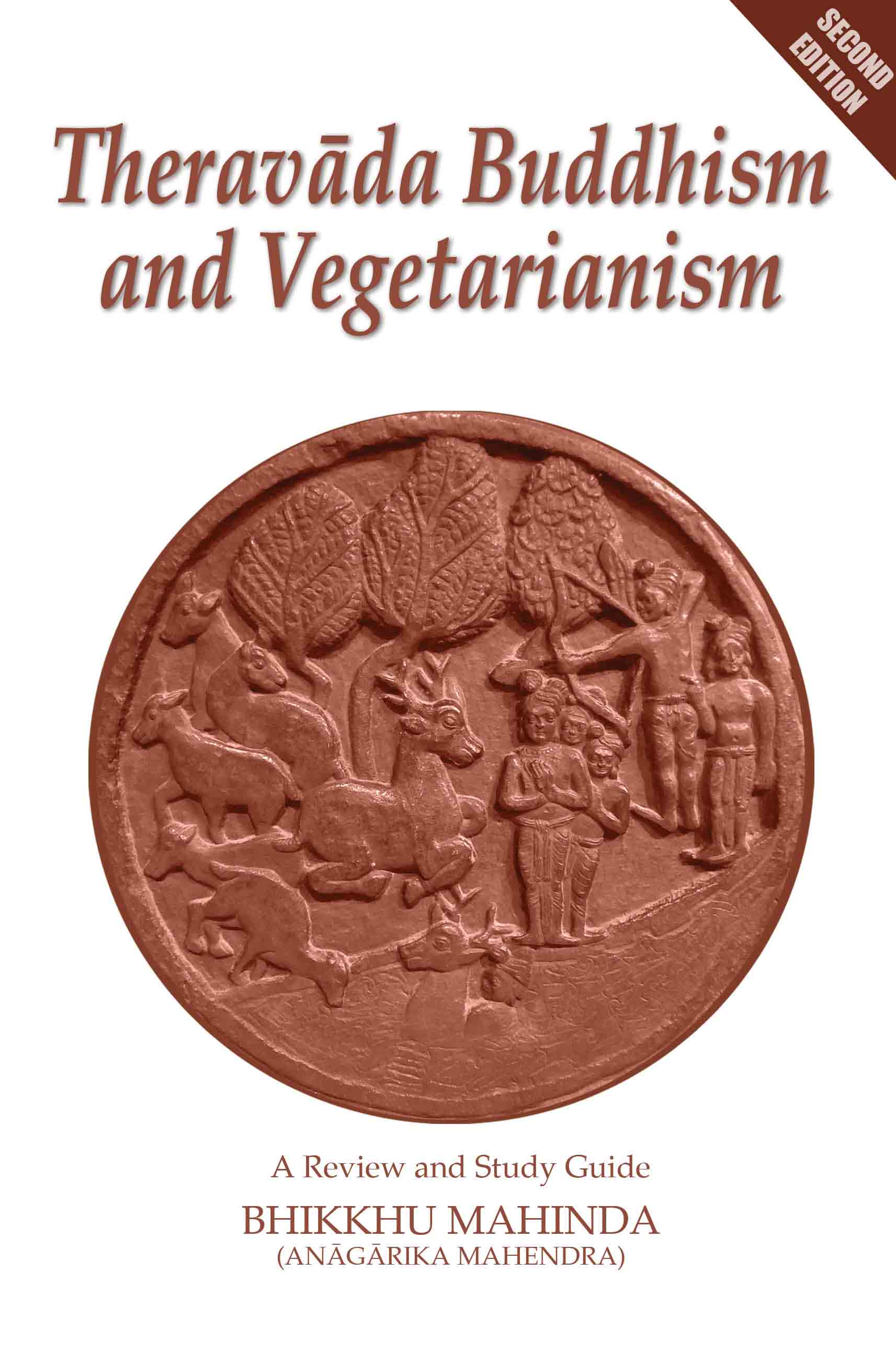
Theravāda Buddhism & Vegetarianism
A Review and Study Guide
This book aims to comprehensively survey and review the Sutta piṭaka teachings in terms of the role of vegetarianism in Theravāda Buddhism. To accomplish this, a two-pronged strategy was employed. First, most of the known English translations were scanned to identify related teachings. Second, the built-in word search function within CST was used to search for keywords related to food, meat, and so on. These teachings were then organized in a framework that consisted of both selected limbs of the Noble Eightfold Path and topics of interest.
In addition to a survey of the teachings, we have also tried to identify what the then-contemporary people understood of the teachings. One such source is Emperor Ashoka and his edicts while the second source is one of the Jātaka depicted on the Bharhut Stupa.
The final chapter provides both a standard for judging what is beneficial and what is not as well as guidance on what not to do and what to do. A comprehensive set of indices and a Pāḷi-English glossary round-out the book, helping the reader to follow-up with extra reading and/or learn Pāḷi for herself.
This is a completely reworked edition, with numerous textual and grammatical changes. New content has been added and existing content has been updated. Many Pāḷi terms have been modified and now they have been standardized across all the books I have authored.
It is sincerely hoped that this book will help all the seekers of welfare understand the teachings as they relate to food, help generate the right view, and help quicken their journey to the ambrosial taste of Nibbāna.




